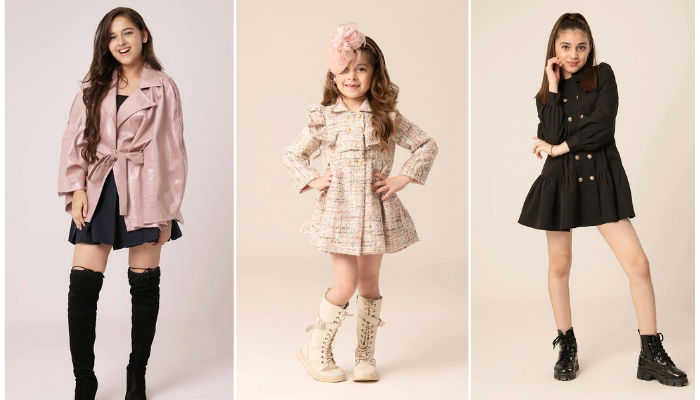Call/WhatsApp +91-8447722222
- Girl
- Boy
- Gifting
- Personalised
- Lifestyle
- Accessories
- Accessories
- Clips
- Hairbands
- Socks & Tights
- Bags
- Crown
- Bow Ties
- Caps
- Pouches
- Sunglasses
- Facemasks
- Footwears
- Bangles & Bracelets
- Rakhi
- Cufflinks
- Brooches
- Buttons
- Earrings
- Necklaces
- Hairties
- Potlis
- Scarves
- Raincoats
- Nazariya
- Comb
- Pendant
- Float & Float Bands
- Vest
- Swimming Accessories
- Googles
- Key Chains
- Watches
- Shringar Set
- Hair Extentions
- Led Mask
- Passa
- Gloves
- Accessories
- Jewellery
- Ready To Ship
- Toys
- Personalised
- Twinning Sets
- Baby Essentials
- Occassion
- Bestseller
- Baby
- Return Favours
- Velvet Store
- Brands
- Sale
- Women
- Men
- NEW IN
- NEW IN
- BRANDS
- GIRLS
- BOYS
- LIFESTYLE
- TOYS
- GIFTING
- RETURN FAVOURS
- PERSONALISED
- NEW IN
- BRANDS
- GIRLS
- BOYS
- ACCESSORIES
- LIFESTYLE
- TOYS
- GIFTING
- PERSONALISED
-
RETURN FAVOURS
- Toys & Tech
- Skincare
- Themes
- Accessories
- Combos
- Stationary
- Decor
-
Brands
- Advait Living
- Aplito
- B.box
- Baby Bed Story
- Baby Forest
- Baby Jalebi
- Baby Moo
- Bling Orn
- Boon
- Cetaphill
- Diamondtine
- Gempetit
- GULCO
- Ilearngrow
- Jazz My Home
- Kaypac
- Kidkraft
- Krysallis
- Kstory
- Little Canvas
- Little Rawr
- Little Surprise Box
- MommyPure
- MONC
- House This
- Oli & Carol
- Pasito A Pasito
- Peekaboo Patterns
- Peppley
- Planet of Toys
- Playzu
- Potronics
- RAD Living
- Scoobies
- Sekyo
- SENSlife
- SALE
- READY TO SHIP
Recent Posts
Baby Care in Winter!
- Posted by:Littletags

Taking care of a baby during the winter months requires attention to several key areas to ensure their health and comfort.
Here are some important tips for baby care in winter: Dressing
Dressing
- Dress your baby in layers to regulate body temperature. Use warm but breathable fabrics such as cotton. Start with a onesie or undershirt, add a layer of clothing, and then a sweater or jacket if needed.
- Don't overdress your baby; they are generally comfortable with one more layer than you are wearing. Room temperature
Room temperature
- Maintain a comfortable room temperature, ideally between 68-72°F (20-22°C). Use a room thermometer to monitor the temperature in the baby's room.
- Avoid placing the baby's crib near drafty windows, doors, or vents. Bedding
Bedding
- Use a warm, well-fitting crib sheet and avoid loose bedding, blankets, or pillows which pose a risk of suffocation. Consider sleep sacks or wearable blankets to keep your baby warm without the need for loose bedding. Skin care
Skin care
- Winter air can be dry and harsh on a baby's skin. Use a baby-friendly moisturizer to prevent dryness and irritation. Focus on areas prone to dryness, such as the cheeks, hands, and knees.
- Limit the use of scented or harsh soaps and detergents, as they can further dry out the skin. Hydration
Hydration
- Babies can get dehydrated even in cold weather. Make sure your baby stays well-hydrated by offering breast milk, formula, or water if they have started solids. Limit exposure to germs
Limit exposure to germs
- During the winter months, illnesses such as colds and flu are more prevalent. Limit your baby's exposure to crowded places and people who are sick.
- Encourage good hand hygiene for yourself and everyone who comes into contact with your baby. Outdoor care
Outdoor care
- When going outside, use a stroller blanket or a car seat cover to protect your baby from the cold, wind, and precipitation.
- Avoid prolonged exposure to cold weather, and always check for signs of discomfort such as cold hands or feet. Healthy diet
Healthy diet
- If your baby has started solids, provide a balanced diet with plenty of fruits and vegetables to support their immune system.
- Breastfed babies continue to receive immune support from breastfeeding, so continue breastfeeding if possible. Indoor air quality
Indoor air quality
- Use a humidifier to combat dry indoor air. This can help prevent dry skin and respiratory irritation. Regular health check-ups
Regular health check-ups
- Keep up with regular pediatrician appointments to ensure that your baby is healthy and developing normally.
This becomes even more important during the winter months when illness rates tend to increase.
It's important to remember that every baby is different, and what works for one might not work for another. Monitor your baby's behavior and response to the environment, and adjust your care routine accordingly. If you have any specific concerns about your baby's health or well-being during the winter, always consult with a pediatrician for personalized advice.

Together, we can make a difference in the lives of women by supporting & empowering them.
Policies
Customer Help


© 2025 LITTLETAGS. ALL RIGHTS RESERVED.

Added to your shopping cart successfully.

WELCOME TO LIttle Tag
Enjoy 1000% off on your first purchase
Sign up to subscribe to our newsletter, join our online community & stay updated on all things fashion.















